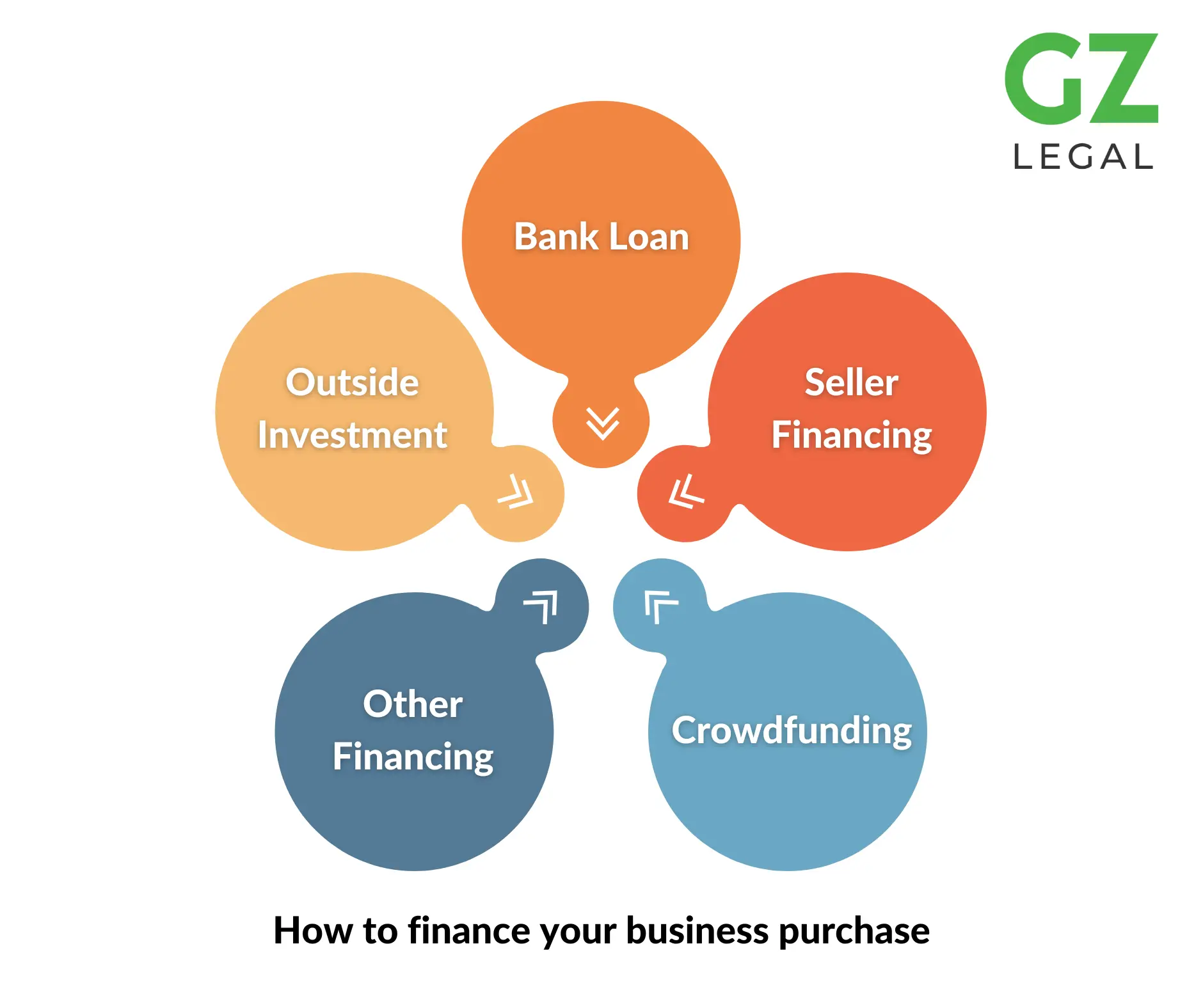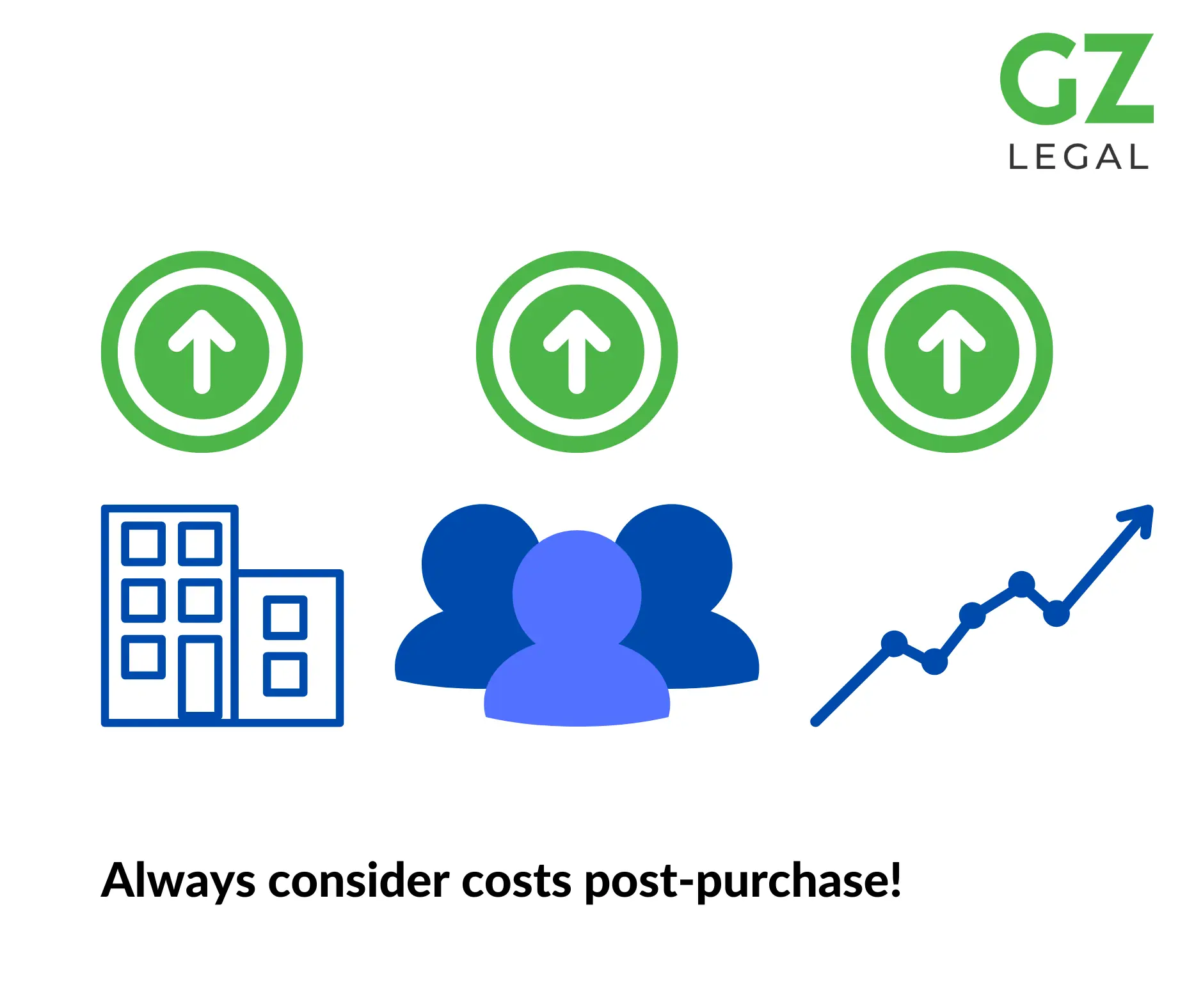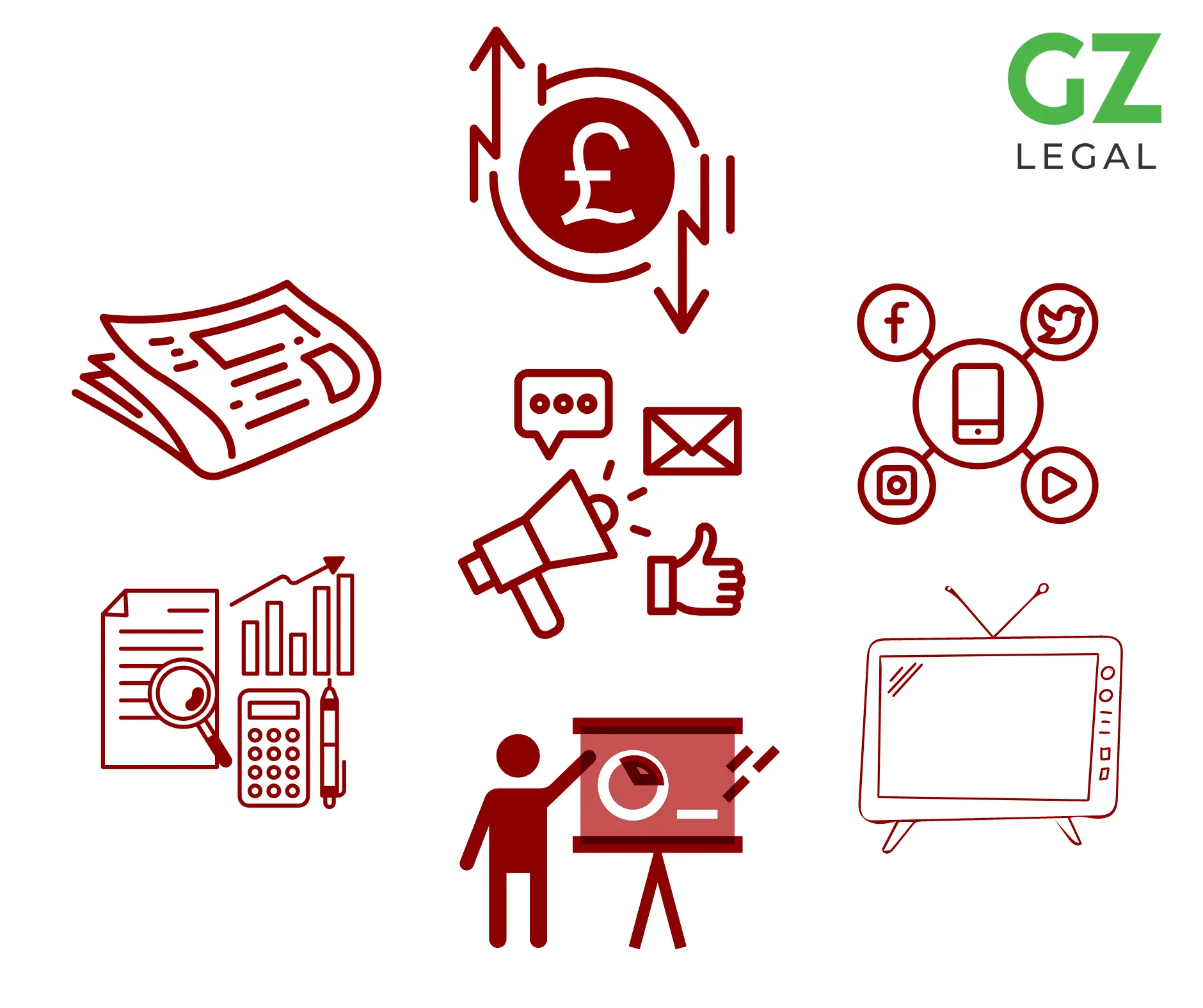Malcolm ZoppiSun Oct 15 2023
How Much Does It Cost to Buy a Business UK?
Understand all the costs involved when buying a business in the UK.
Introduction to Buying a Business
So, you’ve decided to take the plunge and buy a business. Congratulations! But before you dive in headfirst, it’s essential to understand how much it actually costs to buy a business in the UK. In this comprehensive guide, we’ll explore the various expenses you’ll encounter, from purchase price and legal costs to financing options and post-purchase considerations. Armed with this knowledge, you’ll be better prepared to make informed decisions, save money, avoid any hidden costs, and navigate the process with confidence.
Short Summary
- Understanding the costs associated with buying a business is essential for successful transactions.
- Evaluating a business’ financial health requires reviewing financial statements, assessing debt and liabilities, and engaging the services of an experienced broker.
- Post-purchase costs such as renovations, employee training, and marketing should be taken into account to ensure longstanding success.
Understanding the Costs of Buying a Business

When considering the acquisition of an existing business, it’s crucial to account for all the associated costs before you make any commitment to spend money. These typically include the purchase price, professional fees, and due diligence expenses. By understanding these costs upfront, you can avoid surprises down the line and ensure a smooth and successful transaction.
Keep in mind that these expenses are not exclusive to buying a business; they are also applicable to startup business costs when starting a new venture.
Purchase Price
The purchase price of most businesses is influenced by various factors, such as the size, industry, and profitability of the business being acquired. As a potential buyer, it’s essential to research the market and industry trends to gain insights into the costs involved and make an informed decision. While it’s tough to pinpoint an average purchase price for businesses in the UK, having a clearer understanding of these factors will help you determine a fair valuation for the business you’re interested in.
Keep in mind that the purchase price is just the beginning of your business buying journey. You’ll also need to prepare for additional expenses, such as legal fees, due diligence, and any other costs associated with the acquisition. Being aware of these expenses is vital to help you budget accordingly and ensure that you have sufficient funds to cover all the costs involved.
Legal Fees
Legal fees for acquiring a business in the UK can vary widely, depending on the magnitude and complexity of the transaction. Generally, solicitors charge a fixed fee based on a percentage of the sale value, typically ranging from 1% to 2%. This is an important aspect to consider when evaluating a business idea for acquisition. However, these fees can range from a few hundred to several thousand pounds, depending on the complexity of the transaction and the type of legal services needed.
Legal due diligence is an essential part of this process to ensure a smooth transaction. To avoid any unexpected costs during the acquisition process, it’s wise to consult with a solicitor who can provide additional support and guidance. They can help you navigate the legal complexities and ensure that all transactions are in accordance with the law.
By factoring in these legal fees and considering relevant business advice, you’ll be better prepared to manage your overall budget and make a well-informed decision when purchasing a business.
Due Diligence Expenses
Due diligence expenses are another critical aspect of the business acquisition process. These costs include financial, legal, and operational assessments of the target business. It’s also important to research the business’ or company’s reputation and presence in local and national newspapers to gain insights into its public image. The due diligence expenses for purchasing a business in the UK can vary depending on the size and complexity of the business being acquired. As an approximate estimation, the costs of the due diligence review are between 2% and 5% of the total transaction amount.
By conducting thorough due diligence, you can avoid purchasing a business with undisclosed liabilities and ensure that critical components of the business are not overlooked. This includes checking the Companies House records for the business, for example. Taking the time to investigate all the details of a potential business acquisition will help you make an informed decision and mitigate any risks associated with the purchase.
Evaluating a Business’s Financial Health

In addition to understanding the costs of buying a business, it’s equally important to evaluate the business finances of the company you’re considering. This includes reviewing financial statements and assessing debt and liabilities. A thorough examination of a business’s financial health will provide you with insights into its profitability and financial stability, ensuring that you make a sound investment decision.
In the following subsections, we’ll delve deeper into the process of reviewing financial statements and assessing debt and liabilities.
Reviewing Financial Statements
Reviewing financial statements is a crucial step in determining the profitability and financial stability of a business. By conducting a ratio analysis, investigating inconsistencies, and inquiring about accounting procedures, you can effectively review a business’ financial statements. Auditors and accountants also typically apply analytical procedures and assess accounting principles and estimates. This is especially important for retail businesses, where financial performance can be greatly impacted by market trends and consumer preferences. Remember, though, to factor in any auditor and accountancy fees to the overall cost of buying a business.
Financial statements should be reviewed on a regular basis, at least once a month. This helps in monitoring the financial health of the business, including expenses such as office space, employee salaries, marketing spend, and other running costs. By staying up to date with the business’ financial performance, you can make informed decisions about the acquisition and avoid any potential pitfalls along the way.
Assessing Debt and Liabilities
Assessing debt and liabilities is another essential aspect of evaluating a business’ financial health. By comparing the debt level of the business with other businesses of similar size in the same industry, calculating the debt ratio (total liabilities divided by total assets), and utilising the balance sheet test for insolvency, you can effectively evaluate a business’s debt and liabilities. This information ensures that you’re aware of any outstanding obligations that may impact the business’s value.
When evaluating a business’s debt and liabilities, it’s crucial to consider any existing obligations that may have an effect on the business’s value. This will help you make an informed decision when purchasing the business and ensure that you understand the full extent of any financial obligations you’re taking on.
Working with a Business Broker
Working with a business broker can help streamline the buying process and provide valuable guidance throughout the entire journey. However, it’s essential to understand broker fees and find the right broker for your needs.
In the following subsections, we’ll discuss broker fees and offer tips on finding the right business broker to assist you in buying a business.
Broker Fees
Business brokers usually charge a commission for their services, which typically ranges from 5% to 10% of the purchase price, depending on the size and complexity of the transaction. Although fees of 2.5%-5% may be more reasonable, it’s essential to factor these fees into your overall budget when considering the purchase of a business.
Keep in mind that these fees are not the only costs associated with the services of a business broker. Depending on the magnitude and complexity of the transaction, there may be additional fees for services such as due diligence and legal advice. Be sure to discuss these fees upfront with your broker to avoid any surprises later on in the process.
Finding the Right Broker
Finding the right business broker is crucial for a successful acquisition. To identify a suitable broker, it’s essential to consider their experience in the industry, their reputation, and their expertise. It’s also wise to request references and verify that the broker is licensed and insured. The UK trade body for business brokers, iTABB, can be a valuable resource for finding a suitable broker, and researching a national directory of business brokers and business transfer agents in the UK can also be beneficial.
When selecting a business broker, remember that their role is to mediate the sale of a business, connect buyers and sellers, aid in the valuation process, and ensure that all transactions are in accordance with the law. By choosing a reputable and experienced business broker, you’ll have the support and guidance needed to navigate the complex process of buying a business.
Negotiating the Purchase Price

Negotiating the purchase price is a critical step in buying a business, and it’s essential to be well-prepared for this part of the process. Understanding common negotiation tactics and maintaining a strong stance during negotiations can help you avoid finding yourself in an unfavourable position and elicit a respectful response from the other party.
In the following subsections, we’ll discuss how to prepare for negotiations and explore common negotiation tactics.
Preparing for Negotiations
When preparing for negotiations, it’s important to research the business’s financial health, industry trends, and potential growth opportunities. This information will help you make an informed decision about the purchase price and terms of the sale. Additionally, it’s crucial to keep information regarding the amount you can spend on the deal and any other information that could be used against you confidential.
Another important aspect of preparing for negotiations is setting clear objectives for the purchase price, terms of the sale, and any other conditions of the sale. By establishing these objectives upfront, you’ll be better prepared to navigate the negotiation process and achieve a successful outcome.
Common Negotiation Tactics
Common negotiation tactics include making an initial offer below the asking price while providing evidence to support the proposed valuation. This approach can help you establish a strong starting point for negotiations, while also demonstrating your commitment to a fair and reasonable outcome.
It’s also important to maintain a strong stance during negotiations and remain unemotional throughout the process. By employing these tactics and staying focused on your objectives, you’ll be better equipped to negotiate the purchase price and terms of the sale.
Remember that the goal of negotiations is to reach a mutually beneficial outcome for both parties, so be prepared to compromise and make concessions when necessary.
Financing the Purchase

Financing the purchase of a business is a critical aspect of the acquisition process, and there are various options available to help you secure the funds needed to complete the transaction. In this section, we’ll discuss traditional financing options like bank loans, as well as alternative financing options such as investor funding, seller financing, or crowdfunding.
Bank Loans
Bank loans are the most common financing option for purchasing a business, but they may require collateral and a strong credit history. To secure a bank loan, you should have a good credit rating, comprehensive business financials, and a basic understanding of the lending process. The exact requirements may differ depending on the bank and the business being purchased.
When seeking a bank loan, it’s important to compare interest rates, repayment terms, and any other applicable fees. Additionally, having a good credit score and a well-developed business plan will be beneficial in obtaining favourable terms.
By researching the various bank loans available and choosing the one that best meets your needs, you can ensure that you have the financial resources necessary to complete the purchase of your desired business.
Alternative Financing Options
In addition to bank loans, there are alternative financing options available for purchasing a business. These options include small business loans, angel investment, crowdfunding, government grants for small businesses, invoice finance providers, loan and debt providers, seller financing, and asset finance.
The benefits of alternative financing options include greater flexibility than traditional bank loans, access to capital in a timely manner, reducing the money upfront that is required, and the ability to customise the loan to the particular needs of the business. However, the drawbacks include higher interest rates, shorter repayment periods, and the potential for additional fees.
When evaluating financing options, it’s important to take into account the interest rate, repayment terms, and any other associated fees or charges. This will help you make an informed decision and choose the financing option that best suits your needs and circumstances.
Post-Purchase Costs to Consider

After purchasing a business, you should consider and be aware of several post-purchase costs, including renovations and upgrades, employee training, and marketing efforts. These expenses are essential for ensuring the long-term success of your new business and should be factored into your overall budget.
In the following subsections, we’ll discuss each of these costs in more detail.
Renovations and Upgrades
Renovations and upgrades to business premises may be necessary to improve the business’s appearance, functionality, or compliance with regulations. The most frequent renovations and upgrades when purchasing a business are contingent upon the type of business being bought, but some widespread upgrades include office, warehouse or retail space refurbishments, energy-efficient enhancements, and investing in unutilised spaces. Acquiring a run-down property and renovating it can raise its value.
These improvements can have a significant impact on the value of a business. By factoring in the cost of renovations and upgrades, you can ensure that your business remains competitive and appealing to prospective customers.
Employee Training
Employee training is essential for ensuring a smooth transition and maintaining the quality of products or services after purchasing a business. Training costs can include the cost of the training itself, which can be significant, as well as any incidental benefits that accompany the training. Employers are eligible to claim allowable business expenses for training that helps enhance the skills and knowledge used in the business, and the training courses must be related to the business.
By investing in employee training, you can ensure that your staff is equipped with the necessary skills and knowledge to perform their jobs efficiently. This will not only help maintain the quality of your products or services, but also contribute to the overall success of your business.
Marketing Efforts

Marketing efforts, such as rebranding or launching new digital marketing campaigns, can help attract new customers and increase revenue after purchasing a business. These efforts may include advertising the sale of the business, connecting with potential buyers, highlighting the business’s advantages, creating a sale brochure, and recognising and connecting with the appropriate decision-makers.
By investing in marketing efforts, you can raise awareness of your business, highlight its strengths, and connect with relevant decision-makers. This will help you attract new customers, increase revenue, and ensure the durable success of your business.
Summary
In conclusion, buying a business is an exciting and rewarding endeavour, but it’s essential to understand the various costs involved in the process. By considering purchase price, legal fees, due diligence expenses, financing options, and post-purchase costs, you’ll be better prepared to navigate the business acquisition process and make informed decisions. Remember to conduct thorough research, seek professional advice, and remain diligent throughout the entire journey to ensure the long-term success of your new business venture.
Frequently Asked Questions
How much does it cost to start a business?
Starting a new business in the UK can cost an average of £22,756 in the first year, according to research. These business startup costs cover legal fees, product creation, buying stock and other business expenses encountered during these early stages.
However, startups should also take into account that surviving beyond the first five years may require further budgeting.
Can I buy an existing business in the UK?
Yes, you can buy an existing business, which is a much simpler and cost-effective option than starting you own business from scratch, allowing you to benefit from trust of existing customers and market presence.
Buying an existing business can be a great way to get your business up and running quickly. You can take advantage of an established cash flow, existing staff, and ongoing order books.
How do you buy a business in the UK?
To purchase a business, research it, arrange finance, make a formal offer, and complete the sale with legal representation. Negotiation and valuation of the business are also important to ensure a successful transaction, in addition to considering your long-term ambitions for the business.
How long does it take to buy a business?
It typically takes between 6 to 12 months to buy a business in the UK, even for small businesses. Larger acquisitions may take longer to complete, and the time it takes generally depends on the complexity of the deal, the circumstances of the parties involved, and the readiness and availability of financing.
The process of buying a business involves a number of steps, including researching the market, finding a suitable business, negotiating a deal, and completing the legal paperwork. The time taken to complete each step can vary wildly depending on the acquisition.
What factors affect the purchase price of a business?
How long is a piece of string? The factors are often wide ranging, however the size, industry and profitability of a business all play a role in determining its purchase price.
Find out more!
If you want to read more in this subject area, you might find some of our other blogs interesting:
- Step-by-Step Guide on How to Transfer Shares to a Holding Company
- Breach of Settlement Agreement: Consequences and Remedies Explained
- Who Gets the Money When a Company is Sold?
- What is a Counter Offer in Contract Law? Explained Simply and Clearly
- Understanding the Costs: How Much Do Injunctions Cost in the UK?
